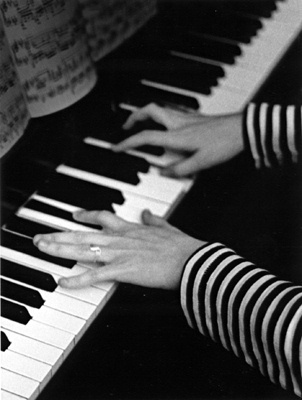All Nonfiction
- Bullying
- Books
- Academic
- Author Interviews
- Celebrity interviews
- College Articles
- College Essays
- Educator of the Year
- Heroes
- Interviews
- Memoir
- Personal Experience
- Sports
- Travel & Culture
All Opinions
- Bullying
- Current Events / Politics
- Discrimination
- Drugs / Alcohol / Smoking
- Entertainment / Celebrities
- Environment
- Love / Relationships
- Movies / Music / TV
- Pop Culture / Trends
- School / College
- Social Issues / Civics
- Spirituality / Religion
- Sports / Hobbies
All Hot Topics
- Bullying
- Community Service
- Environment
- Health
- Letters to the Editor
- Pride & Prejudice
- What Matters
- Back
Summer Guide
- Program Links
- Program Reviews
- Back
College Guide
- College Links
- College Reviews
- College Essays
- College Articles
- Back
Just Like Caviar
I watch him play. He begins with a C major chord. It’s pleasant, sweet, comfortable. Next is G major, then F, then D. They all sound happy. Maybe that’s why there’s a kind of falseness to them, as if they’re made out of plastic. He leans forward, tells me Mozart is boring. He replays the C major chord, then lets his fingers loose a little, freeing them to tiptoe to pariah notes. Suddenly, there is both dark and light, blue and red, ecstasy and pain. He tells me, it’s all about the colours. My eyes widen. I’ll remember this.
Jazz. A single syllable - voluptuous, soft and as biting as a cymbal crash. It’s the caviar of music. Only a few enjoy it, the kind of people who take time cultivating themselves, as if they’re fermenting grapes into fine wine. I wanted to be one of them, fed up with both Top 40 and force-fed Bach. But you don’t just fill your plate with caviar and instantly love it. After all, heaven knows that liking fish eggs has to be an acquired taste.
When jazz first began in America, the kids loved it and the parents hated it. It was alcohol and sex and everything forbidden, wrapped up in sounds. For the first time, chords had edges and melodies swayed like erotic dancers. Teenagers were thrilled. The spikes and dips of their hormones could match the leaps of a saxophone solo. Jazz morphed their awkward experiences into something profound. A Buddy Rich track became their frenzied ambition; an Ella Fitzgerald song was the slow-burning glance of a school crush. Jazz was their rebellion. Through it, they could run away, escape, forget, throw a middle finger up to all of their problems.
When you’re a teenager, you start to feel like you’re full of holes. There are so many gaps you’re always trying to fill, maybe with music or sport or drugs or books. You’re searching for doors to escape from yourself. At the same time, you’re peering inwards to find what’s within. It’s awful - because you have to find a way to deal with it, the boldness, the beauty and the hurt of being so young.
For me, it was through a song - ‘In a Sentimental Mood’ by John Coltrane. It was strange. It ran like warm water trickling over rocks. It was wrong, and then right, and then both wrong and right – how could that be? I listened more and understood less. But I became more certain with each passing note – I was in love. The more I pressed replay, I felt something radical, like shy little me had found a secret passage to the stars. I wanted to think I had written the first page of my life’s bildungsroman. How else could it be possible to feel like I’d changed in the space of a quaver?
Yet sometimes I hated the music. Sometimes I thought it was just bizarre. But most of it grew on me, slowly, like a vine creeping up a wall. So whilst my friends ‘got down’ to the sweaty beat of some rapper, I delved into more Coltrane, then Billie Holiday, Armstrong…I felt new things, saw new colours. That’s the thing – jazz is all about the colours. One blue note in a major chord can give a light its shadow.
I soon came to believe that your average pop song or classical piece, full of conventional sounds, is nothing more than a controlled fantasy. Jazz, I think, is more like life – messy, odd, wonderful. And slightly dangerous. I can put some Coltrane on the turntable and take flight, be fearless. Because even in my most terrible mood, jazz makes me feel otherworldly and powerful. It’s like tasting caviar for the first time.

Similar Articles
JOIN THE DISCUSSION
This article has 0 comments.
